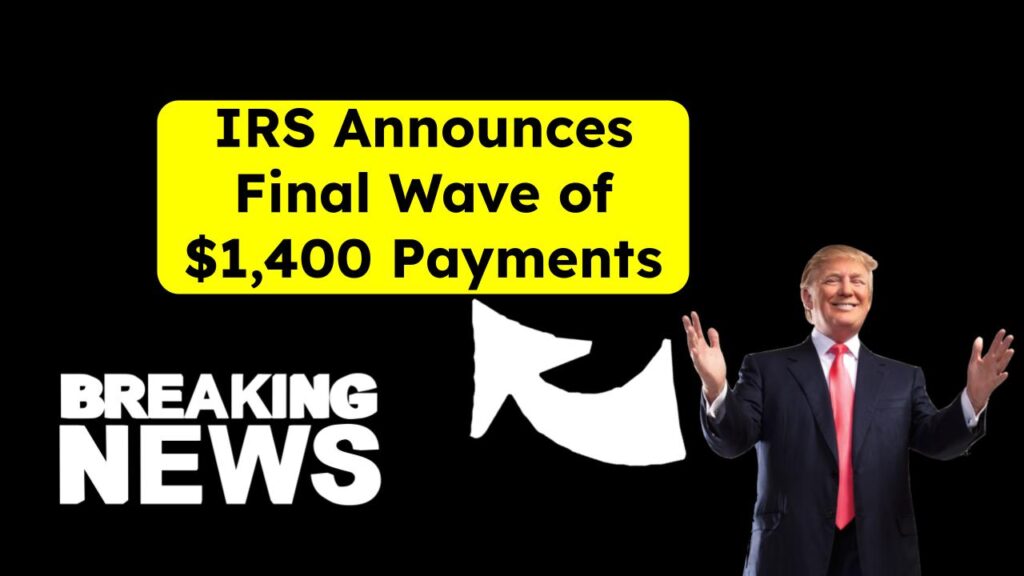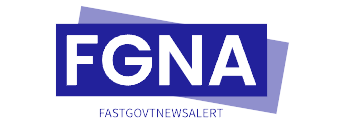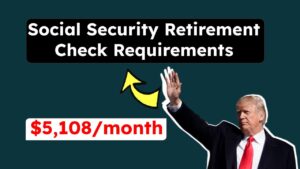
If you’ve been waiting to hear about the IRS final wave of $1,400 payments, your patience is about to pay off. The IRS has announced that unclaimed stimulus funds from the Recovery Rebate Credit tied to 2021 tax returns are still available for eligible taxpayers. Whether you’re a single filer earning up to $75,000 or part of a married couple with a combined income of up to $150,000, now’s the time to act if you haven’t yet claimed this payment. In this article, we’ll break down everything you need to know in simple terms, provide actionable steps to apply, and ensure you don’t miss out on this opportunity.
IRS Announces Final Wave of $1,400 Payments
| Key Information | Details |
|---|---|
| Payment Amount | Up to $1,400 per eligible individual and qualifying dependents |
| Income Thresholds | Single filers: $75,000; Married couples: $150,000 |
| Deadline to Claim | File or amend your 2021 tax return before late January 2025 |
| Who Qualifies? | U.S. taxpayers who missed claiming the Recovery Rebate Credit on their 2021 tax returns |
| How to Apply | File or amend your 2021 tax return online or through a tax professional |
The IRS’s final wave of $1,400 payments provides a golden opportunity for eligible taxpayers to claim much-needed financial relief. By understanding the qualifications, gathering necessary documents, and filing or amending your 2021 tax return promptly, you can secure your rightful share of these funds. Remember, acting quickly is crucial—don’t let procrastination stand between you and the money you deserve.
What Are These $1,400 Payments?
These payments are part of the American Rescue Plan Act of 2021, which aimed to provide financial relief to individuals and families impacted by the economic challenges of the pandemic. For many, these payments were disbursed automatically in 2021 based on prior tax filings. However, some eligible taxpayers—such as those who didn’t file taxes in 2020 or 2021—missed out on receiving their full payment.
The IRS is now stepping in to ensure no one is left behind. By filing or amending your 2021 tax return, you can claim the Recovery Rebate Credit and receive the missing funds.
Who Qualifies for the Final Wave of $1,400 Payments?
To determine if you qualify, let’s break it down into simple terms:
1. Income Requirements
- Single Filers: If your adjusted gross income (AGI) is $75,000 or less, you’re eligible for the full $1,400.
- Married Couples Filing Jointly: If your combined AGI is $150,000 or less, both you and your spouse qualify for $1,400 each.
- Heads of Household: If your AGI is $112,500 or less, you’re eligible for the full amount.
For every qualifying dependent, including adult dependents like college students or elderly parents, you may also receive an additional $1,400.
2. Citizenship and Residency
You must be a U.S. citizen, permanent resident, or qualifying resident alien to claim the payment. Additionally, you must have a valid Social Security number.
3. Missed Prior Payments
If you didn’t receive all or part of your third stimulus payment in 2021, you’re likely eligible for this final wave. This includes people who:
- Didn’t file taxes in 2020 or 2021.
- Experienced a significant change in income or family size after their last tax filing.
- Had a child or other dependent added to their household after their last tax return.
Read Also: Seniors Can Now Collect Up to $6,710 in Retroactive Social Security Funds
How to Apply for the $1,400 Payment
Claiming your payment is easier than you might think. Here’s a step-by-step guide:
Step 1: Gather Your Documents
Before you begin, make sure you have the following:
- Your Social Security number or Individual Taxpayer Identification Number (ITIN).
- Your most recent tax return (2020 or 2021).
- Documentation of any qualifying dependents, such as birth certificates or adoption papers.
Step 2: File or Amend Your 2021 Tax Return
- File Online: Use the IRS Free File program if your income is below $73,000. This service allows you to file federal taxes for free using trusted software providers.
- Amend Your Return: If you already filed your 2021 tax return but forgot to claim the Recovery Rebate Credit, you can file Form 1040-X, Amended U.S. Individual Income Tax Return.
Step 3: Double-Check Your Information
Accuracy is key! Make sure your income, dependents, and personal details match your records. Mistakes can delay processing times or result in incorrect payments.
Step 4: Submit Your Return
Once you’ve completed your return, submit it electronically for faster processing. If you prefer mailing it, send it to the appropriate IRS address listed on their website.
Why Should You Act Now?
Time is running out! The IRS is sending out these payments to eligible taxpayers who act quickly. If you miss the deadline, you could lose access to thousands of dollars in potential refunds. According to IRS data, millions of Americans have already claimed their Recovery Rebate Credits, but there are still unclaimed funds waiting to be distributed.
Think of it like finding money in an old coat pocket—it’s yours, but only if you take the time to look for it. Don’t let procrastination cost you what you’re owed.
Read Also: Social Security Recipients Alert: Bigger Checks Worth Over $1000 Arriving Soon
IRS Announces Final Wave of $1,400 Payments FAQs
Q: I didn’t file taxes in 2021. Can I still claim my $1,400 payment?
Yes! You can file a 2021 tax return even if you didn’t initially file. Use the IRS Free File program or consult a tax professional for assistance.
Q: What happens if I earned more than the income threshold?
If your income exceeds the limits, your payment will phase out gradually. For example, single filers earning above $80,000 won’t qualify for any portion of the payment.
Q: Can I check the status of my payment?
Absolutely! Visit the IRS Get My Payment tool to track your Economic Impact Payment status.
Q: Will I owe taxes on this payment?
No, these payments are not taxable. They’re considered direct financial assistance under the American Rescue Plan Act.
















